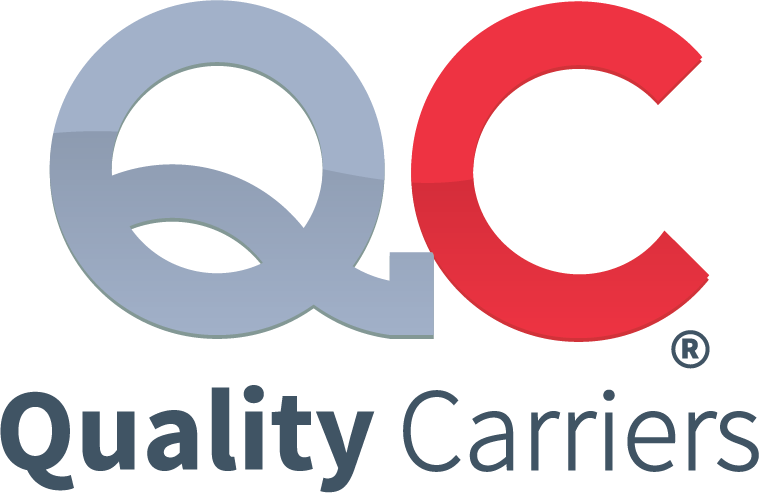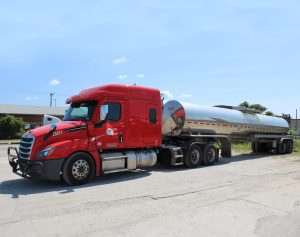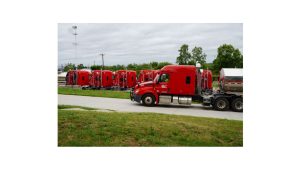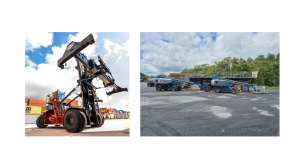Trucking has two primary career paths: owner-operators and company truck drivers. Both play crucial roles in keeping the wheels of commerce turning, but they operate in distinct ways. If you’re considering a career in the trucking industry, it’s essential to understand the differences between these two roles and which one might align better with your goals and aspirations.
What Is an Owner-Operator?
An owner-operator is a truck driver who operates his own commercial trucking business. In contrast to company drivers who work for trucking companies and drive company-owned trucks, owner-operators have the independence of running their own trucking business. They are responsible for acquiring and maintaining their vehicle, securing contracts and loads, managing expenses, and making business decisions.
How Does an Owner-Operator Work?
Owner-operators work by owning and managing their commercial trucks and businesses. They typically invest in their trucks by purchasing or leasing them and may specialize in various types of freight transport, such as long-haul, regional, or specialized cargo. They secure contracts with shippers or brokers to haul loads and handle the logistics of their trips, including planning routes, ensuring compliance with regulations, and managing expenses.
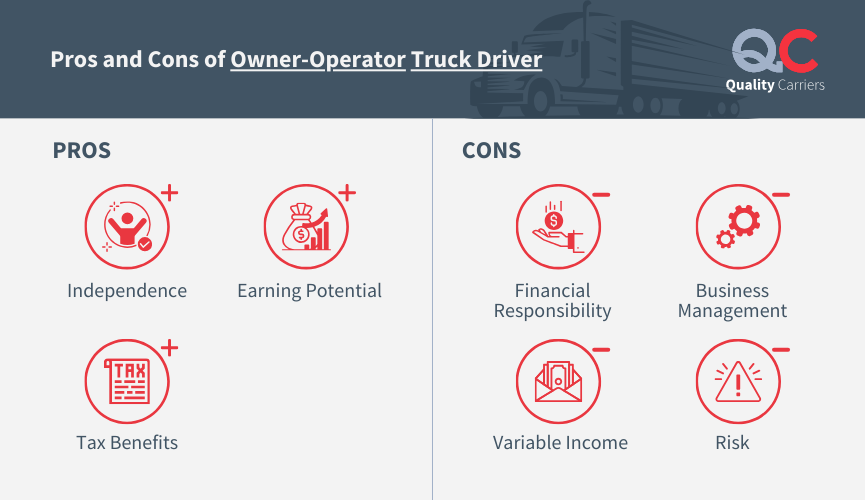
The Pros of Owner-Operator Truck Driver
- Independence: Owner-operators control their schedules, routes, and business decisions. They can choose the types of loads they want to haul and the regions they wish to operate in.
- Earning Potential: While owner-operators bear more financial responsibilities, they also have the potential to earn higher incomes. They can negotiate rates and contracts that align with their financial goals.
- Tax Benefits: Owning a trucking business has potential tax advantages, including deductions for truck-related expenses, fuel costs, maintenance, and more.
The Cons of Owner-Operator Truck Driver
- Financial Responsibility: Owner-operators are responsible for purchasing or leasing their trucks and covering maintenance costs, fuel expenses, insurance, and other operational expenses.
- Business Management: Managing a trucking business involves administrative tasks like bookkeeping, paperwork, and compliance with regulations, which can be time-consuming.
- Variable Income: Income can fluctuate based on factors like market demand, fuel prices, and the availability of loads. Owner-operators may experience periods of high and low earnings.
- Risk: As independent business owners, owner-operators also bear the risk of economic downturns, industry changes, and unexpected expenses.
What is a Company Driver?
A company driver, also known as a truck driver, is a professional truck driver employed by a trucking company. Unlike owner-operators who own and operate their trucks and businesses independently, company drivers work as employees of a specific trucking company. They drive trucks owned by the company and transport goods on routes determined by their employer.
How Does a Company Driver Work?
Company drivers work within the framework established by their employing trucking company. They drive company-owned trucks and are assigned routes and loads by their dispatchers or management. Company drivers are typically responsible for operating the vehicle safely, adhering to schedules, and ensuring the on-time delivery of goods. Depending on their employer’s specialization, they transport various types of cargo like dry goods, refrigerated items, or hazardous materials.
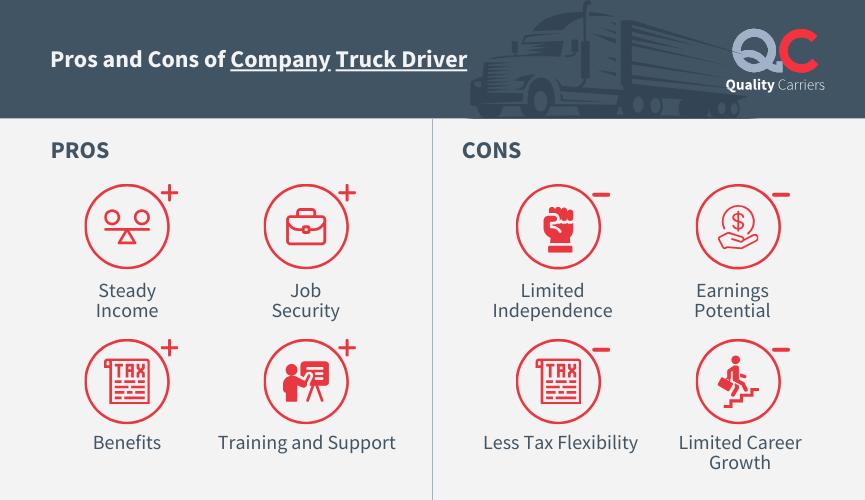
The Pros of Company Truck Driver
- Steady Income: Company drivers often enjoy a consistent and predictable income with regular paychecks. They don’t bear the financial responsibilities of truck ownership.
- Job Security: As trucking company employees, company drivers have job stability and are not exposed to the business risks that owner-operators face.
- Benefits: Many trucking companies offer benefits like health insurance, retirement plans, paid time off, and other perks to their company drivers.
- Training and Support: Companies often provide training programs and ongoing support, including maintenance and repairs for company-owned trucks.
The Cons of Company Truck Drivers
- Limited Independence: Company drivers have less control over their schedules and routes than owner-operators. They must follow company policies and dispatch instructions.
- Earnings Potential: While company drivers have job security, their earnings may be lower compared to owner-operators who can negotiate their rates.
- Less Tax Flexibility: Company drivers have fewer opportunities for tax deductions related to truck ownership and operating expenses.
- Limited Career Growth: Advancement opportunities within the company may be limited for some company drivers who prefer more control over their careers.
Owner-Operator vs. Company Truck Driver: Which Path Is Right for You?
Becoming an owner-operator or company truck driver is a significant career choice. It still depends on your personal goals, risk tolerance, and the level of control you desire in your career. Here are some questions to help you make an informed decision:
- Are you financially prepared for the responsibilities of truck ownership?
- Do you enjoy making business decisions and negotiating contracts?
- Are you comfortable with the financial risks associated with truck ownership?
- Do you prefer the stability and benefits offered by traditional employment?
- Are you looking for more independence and control over your career?
Both owner-operators and company truck drivers play essential roles in the trucking industry. The choice between the two comes from your career aspirations and personal preferences. Whether you opt for an owner-operator’s independence or a company driver’s stability, the trucking industry offers diverse opportunities for those willing to hit the open road.
FAQs
Transitioning from a company driver to an owner-operator can be challenging due to the added responsibilities of business ownership, including truck maintenance, taxes, and finding clients. However, it’s possible with proper planning and financial preparation.
On average, owner-operators in the United States can earn an annual income from $50,000 to $150,000 or more after expenses. However, it’s essential to note that owner-operators are responsible for their truck maintenance, fuel, insurance, and other business costs, which can significantly impact their net earnings.
Company truck drivers’ salaries also vary based on factors such as experience, the company they work for, and the type of freight they transport. On average, company truck drivers in the United States can earn an annual income ranging from $40,000 to $80,000 or more, depending on these variables.
